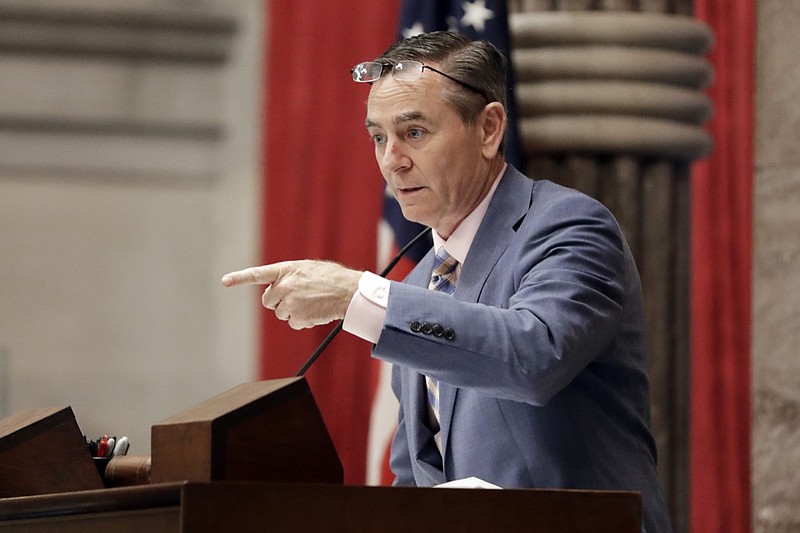A text message scandal involving the Tennessee speaker of the House has morphed into something much worse.
Ironically, it did so in events surrounding the House Ethics Committee.
State Rep. Mike Carter, R-Ooltewah, had said earlier he wanted the facts in an investigation of House Speaker Glen Casada to play out before he made any statement about the lawmaker's potential viability.
Casada has resisted calls to step down from his position after the revelation of sexist text messages sent to him by a former top aide, some of which he responded to in kind. He also admittedly received several racist text messages but said he never saw them at the time. In the midst of the text message scandal, other issues potentially involving Casada also cropped up.
But this week Carter and other members of the House Ethics Committee were called in individually for meetings with the ethics committee chairman and two staff attorneys.
In the meeting, the lawmaker said, he was presented a "statement of facts" that represented Casada's position on many of the issues. After reviewing the document, Carter said what was set forth in the statement did not appear to be in line with "documents existing in the public realm."
Nevertheless, he then was given an "advisory opinion" that was based on the "facts presented" and "found no ethical violation" involving the speaker. The document had lines for ethics committee members to add their signatures.
Stunned, Carter initially said he would not sign the document but agreed to do so if Casada would state under oath the facts presented "were true and correct." He was told that would not happen.
Let's unpack that.
A document produced without the input of the full ethics committee was presented to individual members of the ethics committee, as if it were coming from the committee, but those presenting the document said the subject of the document was not going to be vouching for the statements in the documents about his own actions.
That's truly stunning, and it surely took a large amount of chutzpah for the persons involved to create such a document.
But the scenario went further.
Carter, attempting to bend over backward to be fair, then gave those presenting the document an alternative. He would sign it if he could modify it "to clearly state that the facts upon which the opinion was rendered appear to be divergent from facts in the public record" and if he could "write the final paragraph and attach his letter to the opinion as Exhibit A."
He was given to believe his request would be honored at a planned meeting of the ethics committee, but that meeting was postponed and never rescheduled.
Since then, Carter, given to understand the advisory opinion would be an "exoneration" of Casada, felt after more thought and consideration he needed to call for the speaker's resignation.
"My concern with the [ethics committee] meeting," he said, "is that it shows a heart for misrepresentation and political maneuvering to save the requestor's office even at a loss of reputation and integrity of the House Ethics Committee. This is the most egregious act I have been made aware of."
Thus, said Carter, "in my six years on the Ethics panel this is wholly without precedent. If the requestor is willing to rig and predetermine an outcome of the ethics committee this week he is in my opinion not fit to hold the trust of his office or the state of Tennessee."
The scenario is mindful of the Watergate scandal that brought down the presidential administration of Richard Nixon in 1974. The break-in of Democratic National Committee headquarters in 1972, involving operatives for the president's re-election team, was bad enough. Nixon, apparently, was unaware of it. But once he became aware that it involved his re-election committee, he helped cover it up and directed officials to impede the investigation. That was worse.
To ask the ethics committee to agree to a set of facts that were apparently divergent from what already was in the public realm and then to plan to present it as an "advisory opinion" is absolutely wrong.
Last week, we suggested that Casada, based not solely on the text message scandal but also on previous unethical campaign behavior, step down from his position.
A number of other state representatives, including Patsy Hazlewood, R-Signal Mountain, likewise have said he should resign. Tennessee Gov. Bill Lee, former Gov. Bill Haslam and Sen. Randy McNally, speaker of the state Senate, have intimated stepping down would be the right decision.
Given the scenario Carter, an attorney and former judge, described this week, we don't know how Casada can legitimately stay in office. We hope he won't drag the state through a protracted attempt to hold on.
